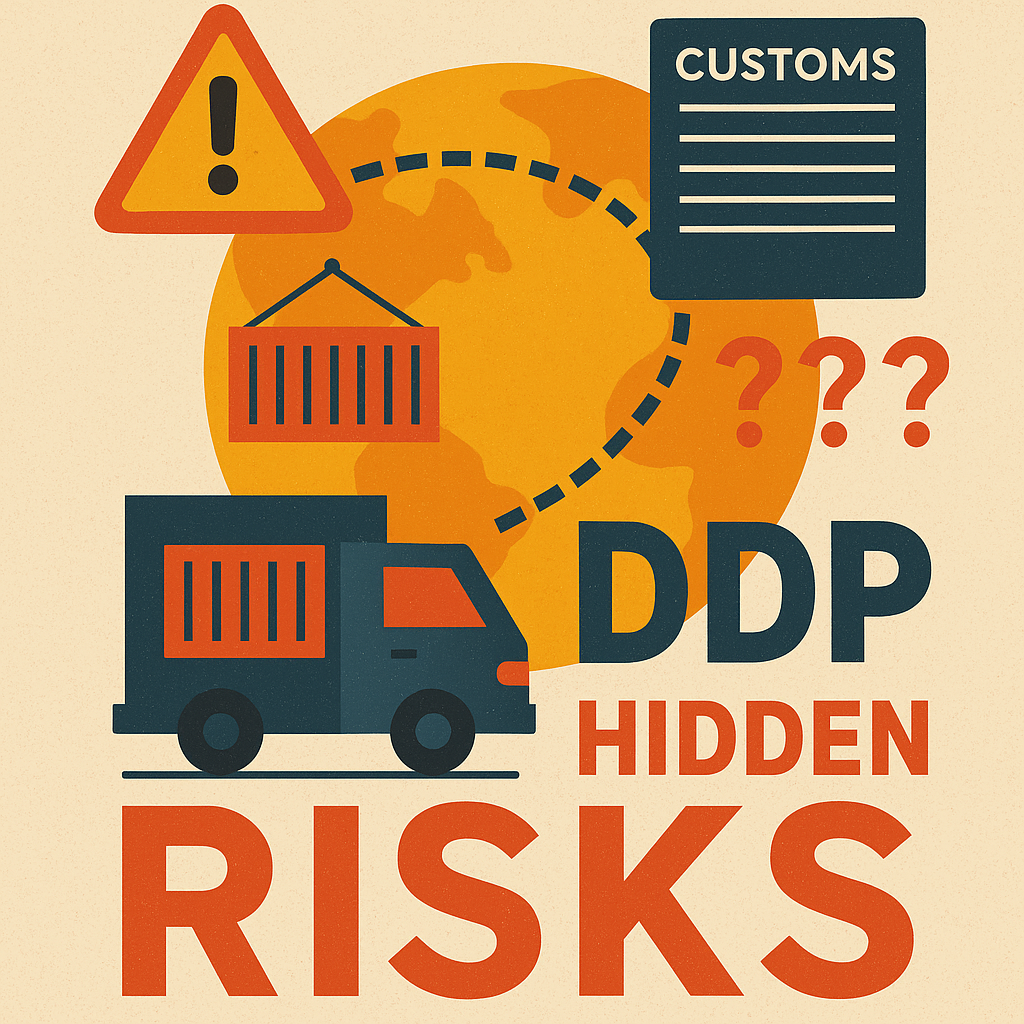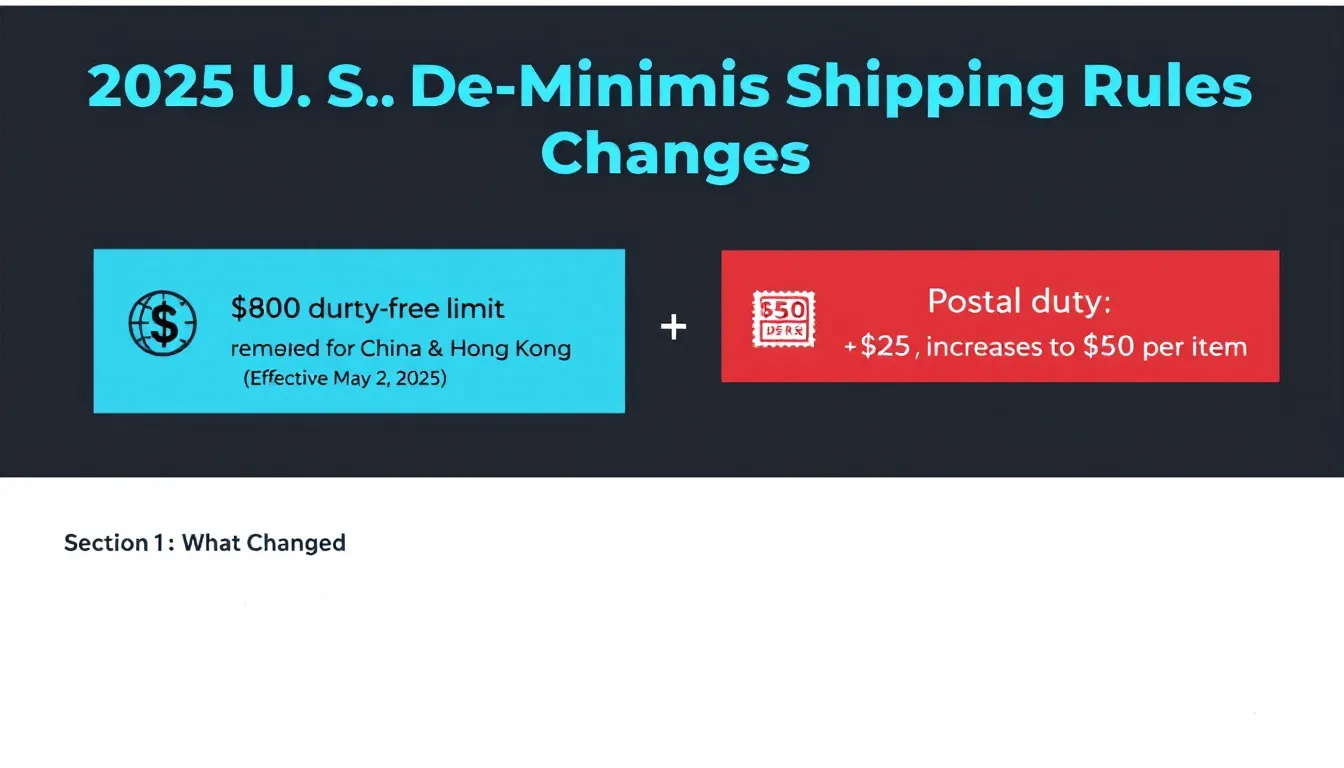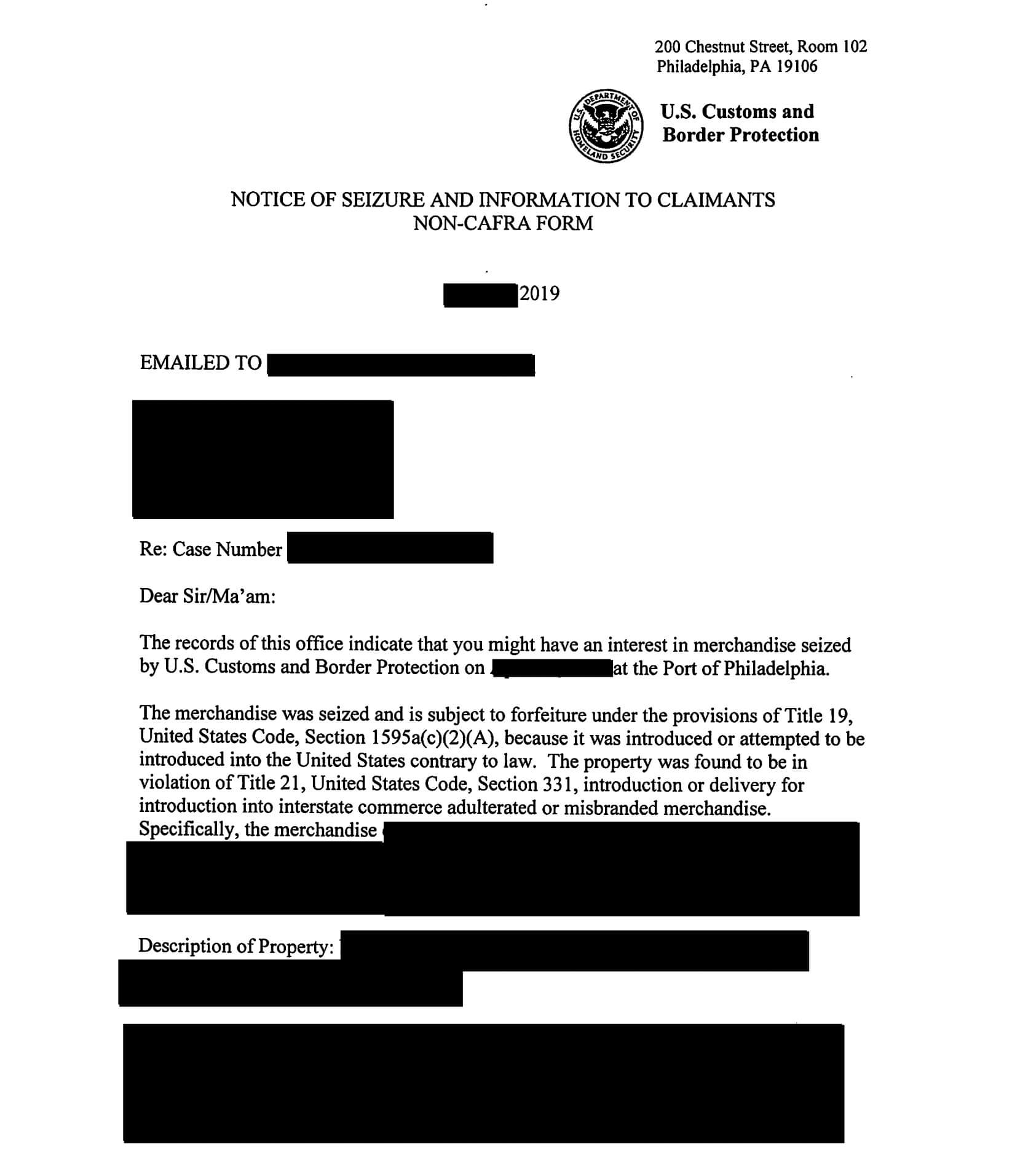Customs classification decisions can have significant implications for businesses involved in international trade. This article serves as a comprehensive resource for businesses dealing with customs disputes. The way goods are classified determines the applicable duties, taxes, and regulations that must be complied with. However, classification decisions made by customs authorities are not always accurate or fair. When a business disagrees with a customs classification decision, it has the right to appeal. In this comprehensive guide, we will walk you through the process of appealing a customs classification decision, covering everything from understanding the significance of accurate classification to presenting your case effectively in an appeal hearing.
Introduction to Customs Appeals
Customs appeals play a vital role in international trade, providing importers and exporters with a formal mechanism to challenge decisions made by customs authorities. Whether the issue involves customs valuation, tariff classification, intellectual property rights, or other customs issues, the ability to appeal ensures that businesses have a fair opportunity to resolve disputes and protect their interests.
When goods are imported or exported, customs officials are responsible for enforcing customs laws and regulations, including those related to border protection, compliance, and enforcement. These authorities determine how goods are classified, valued, and taxed, which directly impacts the duties, tariffs, and taxes that businesses must pay. However, disagreements can arise over these determinations, leading to disputes that require a structured appeals process.
Understanding the customs appeals process is essential for any business engaged in global trade. The process typically involves several administrative procedures, such as filing a formal request for review, submitting supporting documentation, and adhering to strict deadlines. Importers and exporters must be aware of the specific regulations and requirements in the country where the dispute arises, as these can vary significantly.
In many cases, working with a customs broker or seeking legal counsel can provide valuable assistance. These professionals have in-depth knowledge of customs laws, administrative procedures, and the documentation required to support an appeal. They can help businesses navigate complex regulations, prepare persuasive evidence, and communicate effectively with customs authorities to resolve disputes efficiently.
A proactive approach to customs appeals can help businesses avoid costly penalties, seizures, or enforcement actions. By understanding the appeals process, maintaining thorough documentation, and seeking timely guidance, importers and exporters can ensure that their goods are cleared for importation or exportation without unnecessary delays. Ultimately, being prepared and informed empowers businesses to protect their rights and maintain compliance in the ever-evolving landscape of international trade.
Understanding Customs Classification Decisions
Before delving into the appeals process, it is crucial to have a clear understanding of customs classification decisions. These decisions are made by customs authorities to determine the specific classification code or Harmonized System (HS) code that applies to a particular product. The HS code is an internationally recognized system for classifying traded goods, which consists of six digits and is used by customs authorities worldwide.
Accurate classification is especially important for goods imported into the United States, as it directly affects duty assessment and compliance with U.S. Customs and Border Protection (CBP) regulations.
A customs classification decision is based on various factors, including the product’s composition, intended use, and physical characteristics. It is essential to note that the classification decision can significantly impact the import or export process. Incorrect classification may result in overpayment or underpayment of duties, delays in customs clearance, or even penalties.
Businesses should be proactive in understanding how their products are classified and keeping abreast of any changes or updates in classification regulations. By doing so, they can identify potential errors in classification decisions and take the necessary steps to appeal when needed.
The Importance of Accurate Customs Classification
Accurate customs classification is an essential aspect of international trade. The value of imported goods is determined based on transaction value, which may include direct payments made by the importer. It ensures compliance with regulations, facilitates the smooth flow of goods across borders, and helps in proper assessment of duties and taxes. However, errors in customs classification can have serious consequences for businesses.
Underpayment or overpayment of duties: Improper classification of imported goods may result in underpayment or overpayment of import duties and taxes. Underpayment can lead to fines, penalties, and potential audits, while overpayment unnecessarily increases costs for businesses.
Delays in customs clearance: Incorrect classification can lead to delays in customs clearance as customs authorities may require additional information or clarification regarding the product’s proper classification. These delays can affect the supply chain, causing disruptions and financial losses for businesses.
Non-compliance with regulations: Each HS code is associated with specific regulations and requirements. If a product is not correctly classified, it may not meet the necessary regulatory standards, creating legal and compliance issues for businesses.
Given the potential risks and implications, it is vital for businesses to ensure accurate customs classification of their products. However, when disagreements arise with a customs classification decision, the option to appeal provides a way to rectify any errors and seek a fair outcome.
Step-by-Step Guide to Appealing a Customs Classification Decision
The process of appealing a customs classification decision requires careful preparation and attention to detail. While the specific steps may vary depending on the jurisdiction and customs authority, as well as the agency or department involved, the following guide provides a general outline of the appeal process:
Step 1: Review the classification decision: Begin by thoroughly reviewing the customs classification decision. Understand the basis on which the decision was made and identify any potential errors or inconsistencies.
Step 2: Gather supporting documentation: Collect all relevant documentation to support your case. This may include product specifications, photographs, technical drawings, trade publications, expert opinions, and any other evidence that can demonstrate the correct classification of your goods.
Step 3: Consult with experts: If necessary, seek the advice of customs experts, lawyers, or consultants specializing in customs and trade compliance. These professionals can provide valuable insights into the appeals process, strengthen your case, and guide you through complex legal and technical aspects.
Step 4: Prepare the appeal: Draft a clear and concise appeal letter outlining the reasons for your disagreement with the classification decision. The appeal should clearly state the claims you are making against the classification decision. Include a summary of the supporting evidence you have gathered and clearly state what relief or outcome you are seeking.
Step 5: Submit the appeal: Follow the designated procedures for submitting your appeal to the relevant customs authority. The appeal should be submitted to the appropriate agency or department responsible for customs appeals. Ensure that you meet all deadlines and provide all required documentation in the specified format.
The agency is generally required to respond to appeals within a reasonable period, so timely communication is important throughout the process.
Step 6: Attend the appeal hearing: If a hearing is scheduled, prepare yourself by thoroughly reviewing your case and anticipating potential arguments or questions from the customs authority. Present your case clearly and concisely, relying on the evidence and expert opinions you have gathered.
Step 7: Review the appellate decision: After the appeal hearing, carefully review the appellate decision. If the decision is in your favor, ensure that the new classification is correctly reflected in any future transactions. If the decision is not in your favor, consider the possibility of further legal options, such as judicial review or alternative dispute resolution mechanisms.
By following this step-by-step guide, you can navigate the appeals process and increase your chances of obtaining a favorable outcome. It is important to remember that the specifics of the process may vary depending on the country and customs authority involved. Therefore, it is advisable to consult with local customs experts or legal professionals who can provide jurisdiction-specific guidance.
Know Your Rights: Legal Grounds for Appealing a Customs Classification Decision
When appealing a customs classification decision, it is essential to understand the legal grounds on which you can base your appeal. Appeals should be based on specific legal provisions governing customs classification. While these grounds may differ across jurisdictions, some common legal arguments include:
Incorrect classification: If you believe that the customs authority has incorrect or misapplied the classification code, you can present evidence supporting the correct classification of your goods.
Inconsistent interpretation: Customs classification decisions should be based on consistent interpretation and application of the relevant regulations and guidelines. If you can demonstrate an inconsistency in the interpretation of these rules, it may strengthen your case for appeal.
Precedent or administrative practice: If there is a published precedent or established administrative practice that supports your position, you can use it as a basis for your appeal. Such precedents or practices may be derived from previous customs decisions, court rulings, or authoritative interpretations of the regulations.
Procedural errors or violations: If the customs authority has made procedural errors or a violation of your procedural rights or obligations during the classification process, you may have grounds for appeal. Examples of procedural errors can include failure to provide adequate notice or an opportunity to be heard.
Significant economic impact: If the classification decision has a significant economic impact on your business, you can argue that the decision should be given closer scrutiny or that a different interpretation should be adopted to mitigate the impact.
It is important to consult with legal professionals or customs experts who can analyze the specifics of your case and determine the most appropriate legal grounds for your appeal, including relevant provisions and your obligations under customs laws. Presenting a strong legal argument can significantly increase your chances of succeeding in the appeals process and obtaining a fair outcome.
Gathering Evidence to Support Your Appeal
When appealing a customs classification decision, the strength of your case relies heavily on the evidence you present. Appropriate evidence can validate your assertions and convince the customs authority of the correctness of your position. Some essential types of evidence to consider include:
Product specifications: Provide detailed information about the composition, functionality, and intended use of your goods. This evidence can help support your argument for the correct classification.
For example, in a recent dispute over the classification of imported merchandise, detailed product specifications were crucial in demonstrating that the merchandise met the criteria for a more favorable tariff category. This helped resolve the disagreement and secure the correct classification.
Official documentation: Include any official documents, such as product brochures, technical manuals, or industry standards that describe the goods and their appropriate classification.
Photographs or samples: Visual evidence, such as photographs or physical samples, can be particularly helpful in demonstrating the specific characteristics or features of the merchandise in question that support your classification argument.
Expert opinions: Seek expert opinions from customs consultants, industry specialists, or legal professionals who can provide their expertise in supporting your position. Their knowledge and experience can carry weight in the appeals process.
Past customs rulings: Research and include any past customs rulings or decisions that support the classification you are advocating for. These precedents can be valuable in demonstrating that your position aligns with established interpretations of the regulations.
Trade publications or professional journals: Articles or publications from reputable sources that discuss the classification of similar products can lend credibility to your argument.
Remember to collect and present your evidence in an organized and clear manner. This will facilitate the customs authority’s understanding of your position and make your case more persuasive. It is important to ensure that all evidence is accurate, up-to-date, and relevant to the specific classification decision being appealed.
Navigating the Appeals Process: Tips and Tricks
The appeals process can be complex and time-consuming. To navigate it effectively, consider the following tips and tricks:
Understand the timelines and procedures: Familiarize yourself with the deadlines and specific procedures for filing an appeal. Missing these deadlines can result in your appeal being dismissed, so make sure you are aware of all requirements.
Seek legal advice when needed: If you are unsure about any aspect of the appeals process, consult with a customs lawyer or legal expert. Their knowledge and experience can provide crucial guidance and help you avoid potential pitfalls, including navigating inquiries with customs services or the relevant office.
Document everything: Keep a record of all communications, documents, and evidence related to your case. This paper trail can be valuable if you need to demonstrate your compliance and diligence throughout the process. Additionally, maintaining records of all inquiries made to the customs office or services can be especially helpful for supporting your case.
Be professional and respectful: Maintain a professional and respectful demeanor throughout the appeals process. Treat all communication and interactions with customs authorities in a courteous and cooperative manner.
Consider alternative dispute resolution: In some cases, alternative dispute resolution mechanisms, such as mediation or arbitration, may provide a faster and more cost-effective means of resolving your classification dispute. Explore these options with the customs authority or consult with legal professionals to determine if they are suitable for your case.
By following these tips, you can navigate the appeals process more efficiently and increase your chances of reaching a favorable resolution. Keep in mind that each case is unique, and the specific strategies and approaches may vary depending on the circumstances.
Exploring Alternative Dispute Resolution Options for Customs Classification Appeals
While the traditional appeals process involves submitting an appeal to the customs authority, alternative dispute resolution (ADR) methods can offer viable alternatives. The implementation of ADR procedures is designed to facilitate efficient dispute resolution in international commerce. ADR processes, such as mediation or arbitration, provide parties with the opportunity to resolve disputes outside of the formal court system and can offer several benefits:
Efficiency: ADR processes are generally more efficient than traditional litigation, reducing the time and costs involved in resolving classification disputes and supporting the smooth flow of commerce across borders.
Flexibility: ADR allows parties to have more control over the resolution process and tailor it to their specific needs and preferences.
Confidentiality: Unlike court proceedings, ADR processes often prioritize confidentiality, which can be particularly important when dealing with sensitive business information.
Preservation of business relationships: By engaging in ADR, parties can preserve and even enhance their business relationships by resolving disputes amicably rather than engaging in contentious legal battles.
If you are open to exploring ADR options, discuss this possibility with the customs authority. They may have specific ADR programs or procedures in place for resolving classification disputes. Consulting with legal professionals experienced in ADR can also provide valuable guidance.
Working with an Attorney: When and Why You Need Professional Help
While it is possible to navigate the appeals process independently, there are certain situations in which seeking the assistance of a customs attorney becomes essential. Attorneys can also help you navigate disputes with government agencies responsible for customs enforcement. Consider working with an attorney in the following circumstances:
Complex cases: If your case involves intricate legal or technical issues, engaging an attorney well-versed in customs and trade laws can provide crucial expertise and increase your chances of a successful appeal.
Strategic advice: Attorneys can help you develop a comprehensive legal strategy tailored to your specific case. They can guide you on the best course of action, assess the strengths and weaknesses of your position, and help you make informed decisions.
Collaboration with experts: Attorneys often have access to a network of customs experts, consultants, and other professionals who can contribute their specialized knowledge to strengthen your case.
Negotiations and settlements: If your case involves potential settlements or negotiations, an attorney can serve as your representative, ensuring that your interests are protected and that any agreements reached are favorable to your business.
Litigation or complex appeals: If your appeal requires litigation or involves complex legal arguments, an attorney experienced in customs law can represent you effectively, present your case before the courts, and navigate the intricacies of the judicial system. In some cases, if the dispute escalates beyond administrative appeals, attorneys may represent clients in the federal circuit court, where decisions can significantly impact the outcome of intellectual property and trade law issues.
While hiring an attorney adds an additional cost to the appeals process, their expertise and guidance can be invaluable, ultimately increasing your chances of a successful outcome. When selecting an attorney, prioritize those with experience in customs classification appeals and a track record of achieving favorable results for their clients.
Recent Case Studies: Successful Appeals and Lessons Learned
Examining recent case studies of successful customs classification appeals can provide valuable insights and lessons learned. Although each case is unique, the following examples highlight some common themes and strategies:
Case Study 1: Corrective Harmonized System Code: A clothing manufacturer was facing significant financial losses due to an incorrect HS code applied to its products. By meticulously gathering extensive evidence, including apparel industry standards and expert opinions, the manufacturer successfully appealed the classification decision. The case illustrated the importance of detailed documentation and expert support in overturning an unfavorable classification decision.
Case Study 2: Precedent-based Appeal: An import-export company appealed a customs classification decision by citing a similar case in which the applicable classification had been successfully challenged. The company presented the ruling from the previous case, highlighting the similarities and arguing for consistency in the interpretation of the regulations. The appeal was granted based on the precedent, reinforcing the value of precedent-based arguments in classification appeals.
Case Study 3: Dispute Over Origin and Additional Duty: An importer faced a dispute with U.S. Customs and Border Protection regarding the declared origin of a shipment of electronics. Customs and Border Protection determined that the origin was misdeclared, resulting in the imposition of a higher duty. The importer challenged the decision by providing certificates of origin and supporting documentation to prove the correct country of manufacture. The enforcement force of Customs and Border Protection was evident when the goods were detained pending resolution. Ultimately, after a thorough review, the additional duty was reversed, and the goods were released, demonstrating the critical role of origin determination and the importance of compliance for importers facing customs enforcement actions.







1 thought on “How to Appeal a Customs Classification Decision”
Comments are closed.